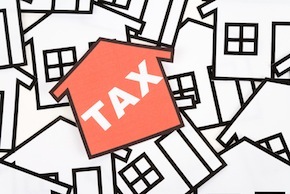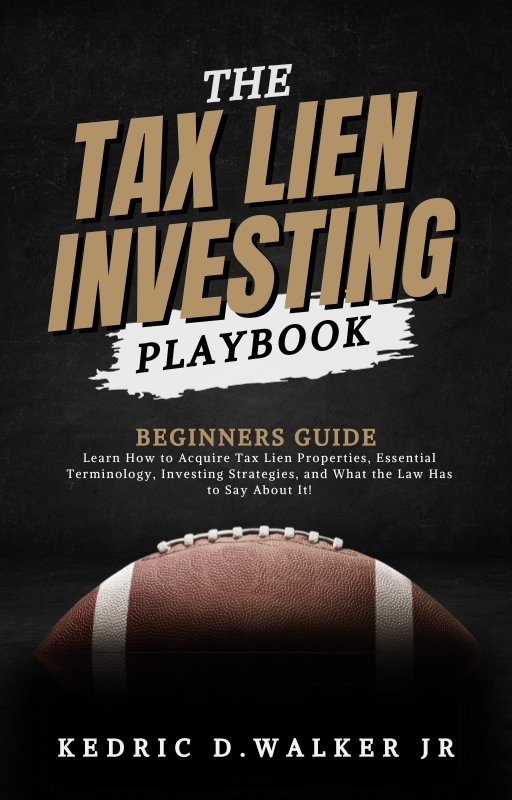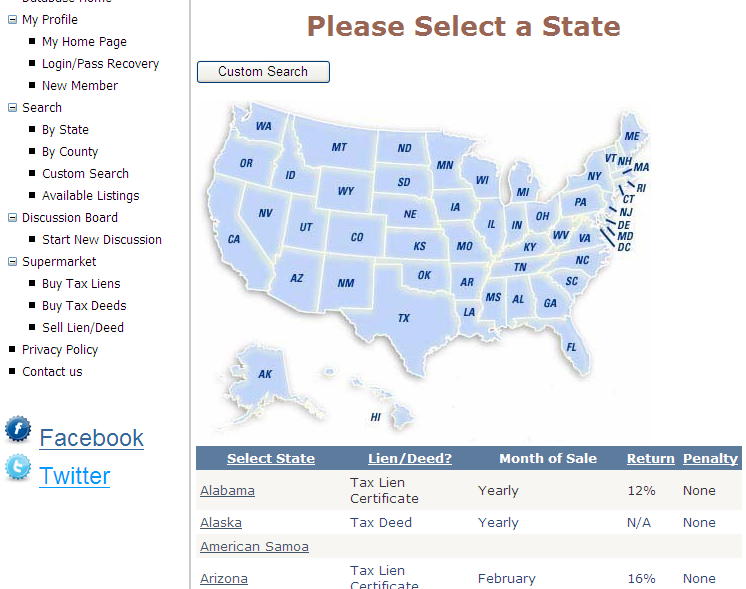All Categories
Featured
Table of Contents
Oftentimes, you will need to outbid various other financiers by using to pay a greater premium (is tax lien investing a good idea). This premium is usually less than the real amount of taxes owed, yet it's up to the capitalist to determine if the threat deserves the collection reward. In a lot of places, real estate tax are around one percent of the residential property's value

Tax lien investors make their money on the passion settlements they collect when the homeowner pays back the tax obligations they owe. In some areas, these rate of interest are as high as 18 percent, which is much more than the typical bank card passion price. Residential property proprietors can pay what they owe all at once, or they can go on a layaway plan ranging from one to 3 years.
Online Tax Lien Investing
In the above example, someone with an outstanding tax obligation financial obligation of $4k (two years of back taxes) would be supplying a tax lien owner with potentially as much as $720 in passion settlements, collaborating with the 18 percent rates of interest we mentioned earlier. One of the best advantages to tax obligation lien financiers is the possible to get a brand-new residential or commercial property for their realty portfolio, without having to pay its market price.

It's a win-win circumstance for the tax obligation lien investor. There are some cons to tax obligation lien investing.
As soon as the lien is paid, the investor needs to go on and try to find a brand-new investment. Certainly, if the residential property proprietor is still in default, the lien holder will obtain the building, which can end up being a recurring income. A person who acquires a tax obligation lien may find themselves knotted with other liens on the property, specifically if they wind up claiming the home in case the financial obligation goes overdue.
This can lead to great deals of lawful battles, which is why it's crucial to function with attorneys and tax obligation advisors who recognize things like action vs title. and can help with doing due persistance on a residential or commercial property. The regulations around tax obligation lien investing (and relevant issueslike foreclosing on lessees) are not consistent throughout states that provide capitalists the capacity to participate in a tax obligation lien sale.
Offered that tax liens are frequently cost auction, contending bidders will bid up the premium and bid down the rates of interest that can be collected on the overdue taxes. The winner of the auction will certainly be the investor that is paying the greatest costs and obtaining the cheapest passion price in return.
Investing In Tax Liens And Deeds
In this vein, tax obligation lien investing is a little bit much more sport-like than conventional passive ways of gaining income. The very first point you'll intend to do is obtain accustomed to the location you're taking into consideration in terms of the property market. Keep in mind that one benefit of coming to be a lienholder is accumulating the residential property if the debt goes unpaid, so you will need to understand where that building is.
As soon as you have actually determined these information out, you require to call your regional area treasurer's office to locate out when and where the following tax lien auction is being held. These auctions are frequently held in person, yet in today's day and age, a lot of have actually transitioned to online places.

The majority of neighborhood papers release these checklists annually or semiannually. This can provide you a great concept about upcoming possibilities. Bear in mind that residential or commercial property tax obligations are typically one percent of the residential or commercial property worth, however unpaid taxes collecting over a number of years could be an extra sizable amount. You can utilize your very own cash money reserves or explore alternatives like property crowdfunding to acquire the capital you require.
How To Invest In Tax Liens
it has actually the added perk of obtaining the home if the financial obligation remains unsettled. While it can be a financially rewarding possibility for the financier, it does need some critical footwork. Occupants and residential property owners do have legal defenses that make tax obligation lien spending a much more engaged process than just bidding to acquire a financial debt and waiting to accumulate the repayment.
Purchasing tax obligation liens involves purchasing a legal case on a residential or commercial property due to unsettled real estate tax. This technique of investing has obtained popularity because of its possibility for high returns with fairly low preliminary funding. Tax liens are typically cost public auctions, and the process can vary depending on the location.

Financiers seek out tax obligation liens for a number of reasons: 1. Reduced First Investment: Tax obligation lien investing usually needs a small amount of money to start, making it obtainable to a vast array of investors.
The Truth About Tax Lien Investing
Building Procurement: If the property proprietor stops working to pay the overdue taxes and passion within the redemption duration, the capitalist may have the right to foreclose and obtain the residential or commercial property. When capitalists buy a tax obligation lien, they pay the overdue tax obligations on a home and receive a tax obligation lien certificate.
There are two possible results: 1. Payment by the Residential Property Proprietor: The homeowner settles the overdue taxes plus passion within a specified duration, and the capitalist obtains the payment with passion. This is the most common end result. 2. Repossession: If the residential property owner does not settle the taxes within the redemption duration, the financier can start repossession procedures to obtain the property.
The self-directed individual retirement account purchases the lien certification and pays associated fees. Mean the residential property owner settles the lien, and the profits return to the individual retirement account. If the home is seized and sold, the sale earnings likewise return to the IRA, possibly expanding the retired life cost savings. Tax obligation Lien: The government markets a lien on the residential or commercial property as a result of overdue taxes.
Tax Lien Investing Crash Course
Tax obligation Action: The government markets the actual action to the building at auction. The winning prospective buyer obtains possession of the residential or commercial property immediately. Some states use a hybrid technique, where a lien might cause a deed sale if not settled. According to the National Tax Obligation Lien Organization (NTLA), 36 states and 2,500 territories within the US enable the sale of tax obligation liens, while just 31 states permit tax action sales.
Latest Posts
What Is Property Tax Sale Auction
Tax Defaulted Property Auction
Delinquent Tax Lien